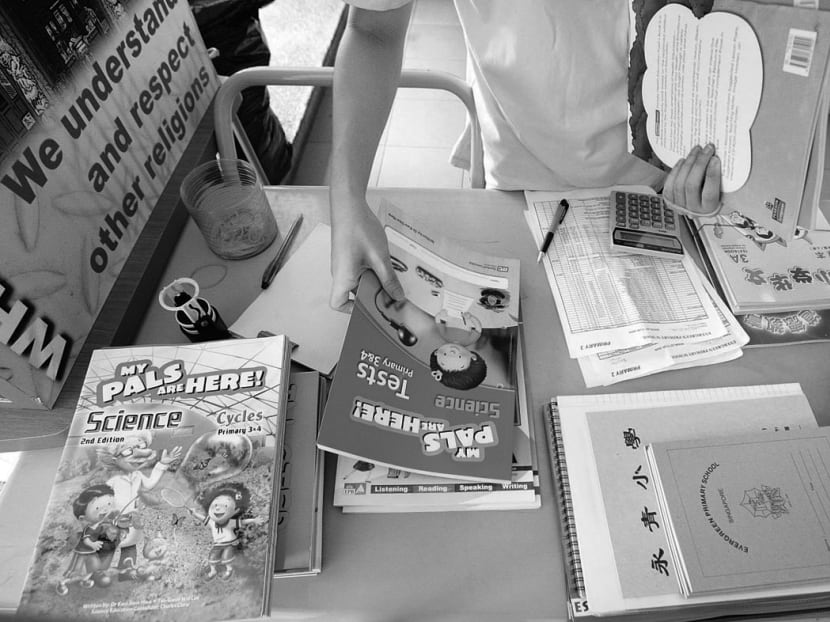Let’s make literature compulsory
At the heart of the current debate about literary studies in Singapore lies a paradox.
At the heart of the current debate about literary studies in Singapore lies a paradox.
As is now clear, the city-state suffers from a horrifyingly low take-up rate of O-Levels Literature. Yet, it is also capable of producing a world-class literary translation journal, in the form of Asymptote.
Started by Singaporean writer and visual artist Lee Yew Leong only two years back, Asymptote was nominated for magazine of the year alongside reputable titles such as the London Review of Books and Times Literary Supplement by the Paris-based 3:AM literary magazine in 2011.
To a literary critic mindful of this contradiction, the Singapore Story must read like Romeo and Juliet.
Both intimate to the possibility of success against all odds. Much as Friar Laurence, in Shakespeare’s tale, hatches an elaborate plot for Juliet to fake her death so that the star-crossed lovers can finally be together, the curious case of Asymptote accords us a glimmer of hope that a technocratic society such as ours can beget a literary gem.
But something has also gone terribly wrong. In the play, the Friar’s messenger did not reach Romeo in time to warn him of Juliet’s deceit and, thinking she was really dead, our doomed protagonist committed suicide. Similarly, literature’s dwindling presence in the Singapore Story has much to do with miscommunication — the failure to explicate our need for it.
NOVEL IDEAS
Are we to despair? To answer this is to consider the debate ensuing from the precarious state of literature as an O-Level subject. Here, there are several overarching assumptions that need a rethink.
The first is the utilitarian view of literature that colours the reactions of the “pro-Lit” camp. Aggrieved by Senior Minister of State (Education) Indranee Rajah’s revelation in Parliament that there are now only about 3,000 students taking literature, compared to 16,970 in 1992, this group argued for the need to recognise literature’s worth — that it imparts critical thinking skills, makes us more creative, and teaches us values.
While viable, such responses reproduce the very conditions that led to the subject’s decline. That is, we are still speaking in the language of economic pragmatism where something is deemed valuable only because it is of some use.
If literature is needed, it must not be because it can offer us something in return. We need it because of a more primal reason — we simply cannot live without it.
If there is anything to be learnt from Yann Martel’s Life of Pi, it is that humans are meaning-seeking creatures hardwired for narratives. We tell stories to make sense of the world, imagine alternatives and explore our neuroses. We need literature like we need air.
Another nuance missing from the debate is the distinction between two ideas of literature — the uppercase “L” kind, and the lowercase “l” type.
The first (Literature) denotes an official discipline, while the latter (literature) refers to a lifestyle. Rather than lament the dearth of the first phenomenon, as is the case, the debate has conflated the two.
Without recourse to data detailing the reading and writing habits of Singaporeans, it is as yet unclear whether the practice of “literature” is in peril. It may be that we are already leading literary lives. If so, then there is no need to fear the decline of “Literature” as an O-Level subject.
But if a literary culture is found to be wanting, then it is indeed time to push the panic button. Singapore must avoid a situation where literature becomes an elitist venture, practised only by a select few.
A final irony governing the debate concerns stereotypes.
The discourse of the “pro-Lit” camp to uphold Literature as the panacea to moral ills suggests that someone with no literary background is less moral or more robotic. Subscribing to such a typecast is unliterary, and goes against the cosmopolitan ideal that Singapore professes to embrace.
My experience in 2011 teaching an elective humanities module at the Nanyang Technological University suggests engineers and scientists are just as capable of appreciating nuances and transcending silos.
THE WRITE PATH
Bearing these in mind, it is not yet time to despair over the low take-up rate of O-Levels Literature. Yet this also does not mean that educators should allow stasis to set in.
With parliamentarians set to discuss ministry policy at the Committee of Supply debates following the current debate over the Budget, here are some practical suggestions to mull over.
If we accept the view that humans are naturally predisposed for narratives, it is important that Singapore offers everyone a chance to tap their inner literati. Translated into policy, this may mean making literature compulsory at all levels in secondary schools.
Yet, Singapore must also avoid the trappings of economic pragmatism lest we repeat the same mistakes. If students are averse to the subject because of the pressure to perform, the way forward then is to somehow remove that pressure.
Here, educators can consider several suggestions such as making Literature a non-examinable subject and assessing students by way of essays instead. A more radical option is to remove grading entirely and transform Literature into a pass-or-fail module.
Only by being bold can Singapore imagine a better literary future.
Nazry Bahrawi is a research associate at the Middle East Institute, National University of Singapore, and lecturer at the Singapore University of Technology and Design.







